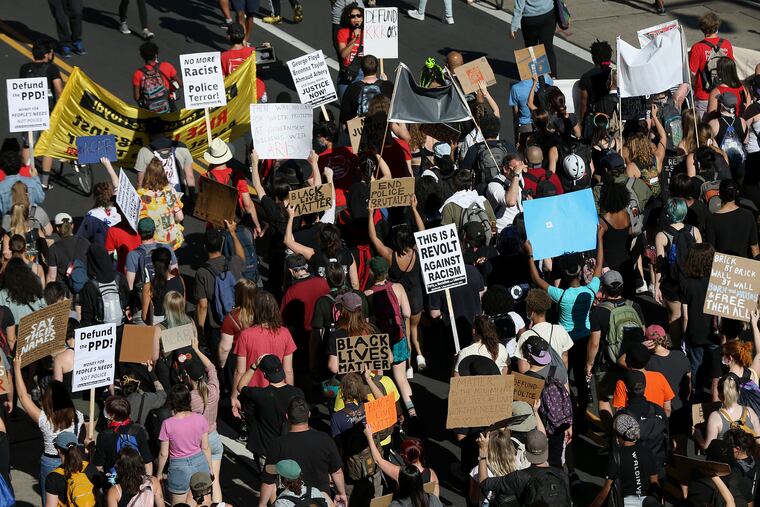Has America finally had enough? | Opinion
This isn't the first time black and white Americans have come together. But will the outcry over the death of George Floyd result in meaningful change?

We see stirring images of black and white people unified in demanding an end to a state-sanctioned reign of terror that has left too many of us breathless.
Jolted by the agonizing death of a black man by a cop so confident in his right to administer deadly correction that he did it as cameras rolled and bystanders begged, this diverse movement seems to signal that America has had enough.
For now.
We’ve been jolted before by images: of fierce dogs biting children, peaceful protesters toppled by blasts from fire hoses, students spit on and beaten at lunch counters, the grotesquely disfigured corpse of Emmett Till, the charred remains of four innocent children being carried from the smoldering wreckage of the bombed-out church where they died in Sunday school at the hands of known terrorists who, of course, would go unpunished. America had had enough then, too.
So black and white people, young and old, joined hands and marched together, we agitated for change together. And there was some change: the Civil Rights Act of 1964, the Voting Rights Act of 1965, and a spate of actions that affirmed the American ethos of “liberty and justice for all.” But even though affirmative action has produced more affirmation than meaningful action, that diverse movement soon faded to black-only as the networks resumed their regular programming and the nation resumed the status quo.
America had had enough — then forgot about it.
So what, if anything, makes this year’s wake-up call any different from an alternating current of rude awakenings and returns to slumber that have characterized so much of America’s history?
Well, it won’t be the coast-to-coast catharsis we see played out on our TV screens. Because, while repeated images of black men paying with their lives for infractions that wouldn’t get a white man a citation may be enough to overcome inertia, it has never been enough to sustain a movement. The only thing that makes lasting change in this country is an appeal to self-interest. The question we have to answer for all of those well-motivated white people who sincerely want to help us is how their advocacy will benefit them in the long run.
White America has been sold on the notion of a zero-sum game: the idea that any advance that benefits blacks or immigrants or “others” comes out of their pockets. That’s why American history is replete with examples of white backlash in the wake of every perceived advance for black people.
We are a nation led by a man who has learned to capitalize on the inbred American mania that “they” want what “you” have earned, a fear that ignores the fact that the “you” were once the “they.”
I watched President George W. Bush being grilled by black reporters at a convention of the National Association of Black Journalists after his “Justice” Department filed a brief on behalf of parents who argued that their children were denied admission to the University of Michigan Law School because some black students were admitted with lower scores.
The president, to his credit, admitted that he had been admitted to both his prestigious prep school and Yale University despite lower than average scores because he was a “legacy” whose father and grandfather had graduated from and endowed Yale.
Would the Justice Department back a suit on behalf of students who were denied admittance because of legacies, athletes, or other preferred applicants? You know the answer to that one. But our national policy under Bush and ever since is that black preferences are unconstitutional, indeed un-American to hear our legacy president tell it.
Someone has to make the case that resolving the racism and inequity will accrue to the benefit of all Americans. There is an economic case that needs to be made about how rising tides elevate all. We need to be reminded of Chicago in 1968, when the victims of police violence were young whites before white America can understand that the knee on my neck today could be on yours tomorrow.
If nothing more, we need to remind ourselves that the world is looking at the same images we are and seeing the difference between who we say we are and who we are indeed.
Only when we close that gap will the marching and protesting signify that, finally, America has had enough.
Elmer Smith is a former columnist with the Daily News and occasional contributor.